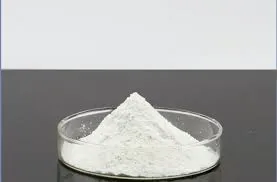- Afrikaans
- Albanian
- Amharic
- Arabic
- Armenian
- Azerbaijani
- Basque
- Belarusian
- Bengali
- Bosnian
- Bulgarian
- Catalan
- Cebuano
- Corsican
- Croatian
- Czech
- Danish
- Dutch
- English
- Esperanto
- Estonian
- Finnish
- French
- Frisian
- Galician
- Georgian
- German
- Greek
- Gujarati
- Haitian Creole
- hausa
- hawaiian
- Hebrew
- Hindi
- Miao
- Hungarian
- Icelandic
- igbo
- Indonesian
- irish
- Italian
- Japanese
- Javanese
- Kannada
- kazakh
- Khmer
- Rwandese
- Korean
- Kurdish
- Kyrgyz
- Lao
- Latin
- Latvian
- Lithuanian
- Luxembourgish
- Macedonian
- Malgashi
- Malay
- Malayalam
- Maltese
- Maori
- Marathi
- Mongolian
- Myanmar
- Nepali
- Norwegian
- Norwegian
- Occitan
- Pashto
- Persian
- Polish
- Portuguese
- Punjabi
- Romanian
- Russian
- Samoan
- Scottish Gaelic
- Serbian
- Sesotho
- Shona
- Sindhi
- Sinhala
- Slovak
- Slovenian
- Somali
- Spanish
- Sundanese
- Swahili
- Swedish
- Tagalog
- Tajik
- Tamil
- Tatar
- Telugu
- Thai
- Turkish
- Turkmen
- Ukrainian
- Urdu
- Uighur
- Uzbek
- Vietnamese
- Welsh
- Bantu
- Yiddish
- Yoruba
- Zulu
Nov . 27, 2024 02:23 Back to list
Injectable Ivermectin for Cattle and Swine Treatment and Dosage Guidelines
Ivermectin Injectable for Cattle and Swine An Overview
Ivermectin is a broad-spectrum antiparasitic agent widely utilized in veterinary medicine, particularly for the treatment and prevention of parasitic infections in livestock such as cattle and swine. Its effectiveness against a range of ectoparasites and endoparasites has made it an essential drug in the arsenal of veterinarians and livestock producers. This article explores the applications, benefits, dosage considerations, and safety of ivermectin injectable formulations for cattle and swine.
Understanding Ivermectin
Ivermectin, discovered in the late 1970s and introduced to veterinary use in the 1980s, belongs to a class of drugs known as avermectins. It works by binding to specific chloride channels in the nervous system of parasites, leading to paralysis and subsequent death of the organism. Ivermectin is particularly effective against nematodes (roundworms), arthropods (such as mites and lice), and certain types of parasites that may affect cattle and swine.
Applications in Cattle
In cattle, ivermectin is commonly used to control internal and external parasitic infestations. It is invaluable for treating conditions caused by gastrointestinal roundworms, lungworms, and external parasites such as ear ticks and lice. Administering ivermectin injectable solution can also reduce the risk of transmission of diseases that can be passed through parasite vectors, improving overall herd health.
Applications in Swine
Ivermectin is equally important in swine farming. It effectively combats a variety of parasites, including Ascaris suum (the large roundworm), Strongyloides ransomi, and various ectoparasites such as mites and lice. Due to its efficacy, ivermectin injectable formulations are frequently incorporated into swine management programs, particularly during periods of stress, such as weaning or transport, when animals may be more susceptible to parasitic infections.
Benefits of Ivermectin Injectable Formulations
ivermectin injectable for cattle and swine

The injectable form of ivermectin offers several benefits over oral formulations. One of the most significant advantages is the rapid onset of action. Injectable formulations typically provide faster absorption and distribution within the body, leading to quicker results in controlling parasitic infestations. Additionally, injectables eliminate the risk of poor ingestion due to factors like stress or illness, which can occur with oral medications. This feature is particularly useful in managing large herds where ensuring every animal receives the proper dosage can be challenging.
Another benefit is the convenience of use. Injectable ivermectin can be administered subcutaneously or intramuscularly and is often formulated for long-acting effects, reducing the frequency of treatment required.
Dosage Considerations
Determining the correct dosage of ivermectin is critical for its efficacy and the safety of the animals. The recommended dosage typically ranges from 200 to 400 micrograms per kilogram of body weight, depending on the specific formulation and targeted parasites. It is essential for livestock producers and veterinarians to follow the manufacturer's guidelines and consult with a veterinarian to develop effective treatment protocols tailored to the specific herd conditions.
Safety Profile and Resistance Issues
Ivermectin is generally considered safe for use in cattle and swine when administered correctly. However, it is crucial to follow withdrawal times before slaughter, as residues can remain in animal products. Additionally, there have been concerns about the development of resistance to ivermectin among certain parasite populations. It is vital to implement integrated parasite management strategies that may include rotation of anthelmintic classes, rotational grazing, and regular fecal exams to monitor parasite loads.
Conclusion
Ivermectin injectable formulations represent a cornerstone of parasite control in cattle and swine, promoting healthier livestock and ensuring sustainable agricultural practices. By understanding its applications, benefits, and safety measures, livestock producers can effectively leverage ivermectin to enhance the health and productivity of their animals. As with any medication, mindful application and adherence to veterinary guidance will ensure its continued efficacy and safety in our food supply systems.
-
Guide to Oxytetracycline Injection
NewsMar.27,2025
-
Guide to Colistin Sulphate
NewsMar.27,2025
-
Gentamicin Sulfate: Uses, Price, And Key Information
NewsMar.27,2025
-
Enrofloxacin Injection: Uses, Price, And Supplier Information
NewsMar.27,2025
-
Dexamethasone Sodium Phosphate Injection: Uses, Price, And Key Information
NewsMar.27,2025
-
Albendazole Tablet: Uses, Dosage, Cost, And Key Information
NewsMar.27,2025













